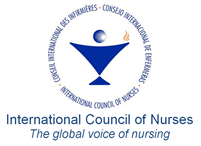|
ICN says nurses’ pay and safety are gender issues at the United Nations Commission on the Status of Women (CSW65) virtual event
|
|
Geneva, Switzerland, 22 March 2021 – The International Council of Nurses (ICN) is participating in the 65th session of the United Nations Commission on the Status of Women (CSW65), which is taking place virtually between the 15th and 26th March 2021. The theme of CSW65 is women’s full and effective participation and decision-making in public life, as well as the elimination of violence, achieving gender equality, and the empowerment of all women and girls. ICN President Annette Kennedy delivered opening remarks at the “Nurses take the lead: Creating gender-responsive global health” parallel event webinar, which was chaired by ICN’s Senior Advisor in Nursing and Health Policy Erica Burton. Ms Kennedy said: “There is inequity across and within countries. It is not acceptable. Gender inequality has been further exposed by the pandemic. Governments are still ignoring calls for protection, fair pay, and decent work conditions for nurses – a workforce which is 90% female. You cannot have patient safety without safety for health workers.” CSW65 noted that gender bias has led to underinvestment in nursing and to the full potential of nurses not being used. Nurses experience high rates of violence and abuse, and during the COVID-19 pandemic they have suffered psychological distress, a lack of protection, and burnout. The event raised the visibility of the work of nurses in creating gender responsive health systems by examining the essential contribution of nurses in responding to the COVID-19 pandemic; exploring the importance of nurse leadership and full and effective participation in global health decision-making; safe and decent work and fair pay for nurses, and advocacy efforts. ICN policy advisor Hoi Shan Fokeladeh presented ICN’s latest findings, including on why nurses’ safety and pay are gender issues, and what is needed to keep nurses safe. Her contribution included information on health worker safety, fair wages, occupational disease compensation and mental health support. She said, “Nurses are facing many challenges in the pandemic, such as the lack of protection and psychosocial support, increased mental distress and existing nurse shortages, and are put in a vulnerable position. Governments need to maximise support for nurses in the frontline against COVID-19 and invest in decent working conditions. Gender equality needs to be at the heart of the COVID-19 response and recovery plan.” As ICN is in consultative status with ECOSOC, Ms Burton intervened from the floor, addressing the Commission during the interactive dialogue entitled: “Building back better – women’s participation and leadership in coronavirus disease (COVID-19) response and recovery”. In her statement she said, “Gender inequalities are deeply embedded into health and social systems, compromising their strength and quality and leading to a failure to meet the needs of populations around the world. For the nursing profession, gender bias has led to chronic undervaluing and underinvestment and the full potential of nurses not being used.”
|
|
* * * |
สาขาของสมาคมฯ
หน่วยงานภายใน
- ฝ่ายวิเทศสัมพันธ์
- ฝ่ายหารายได้
- ฝ่ายสวัสดิการ
- มูลนิธิพยาบาล
- วิจัย
- พยาบาลพิเศษ
- เลขาธิการและนายทะเบียน
- พัฒนาวิชาชีพ
Copyright © 2017. สมาคมพยาบาลแห่งประเทศไทยฯ 21/12 ถนนรางน้ำ เขตราชเทวี กรุงเทพฯ 10400
E-mail : [email protected] โทรศัพท์ 0-2354-1801-2 โทรสาร 0-2247-4470. All Rights Reserved.
E-mail : [email protected] โทรศัพท์ 0-2354-1801-2 โทรสาร 0-2247-4470. All Rights Reserved.







